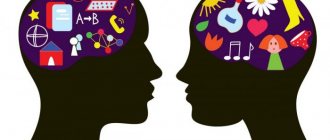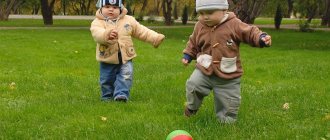What are factors of personality development in psychology
Personal development is a long process, during which the formation of physical and spiritual forces and the realization of a person in society occur. Spirituality, priorities and outlook on life depend on the conditions in which childhood and adolescence take place.
Factors of personality development are forces that promote the process of formation of an individual and help to develop in all spheres of life. From early childhood and throughout life, they influence a person through family upbringing and through the educational system.
What makes us us?
It is worth understanding that the factors that determine personality development are important in the process of self-improvement. It is impossible to achieve growth if even one of them suffers. That is, if you are in a bad team that negatively affects you, preventing you from achieving significant goals, then the question immediately arises: did you make the right choice?
Man makes his own way
In addition to supervision and training, it is very important that the individual himself wants to develop and strives to improve his existing skills. In most cases, he himself determines his future, constantly making choices. That is, a person chooses his political and spiritual preferences, hobbies and likes, this turns him into a person. And further factors and prerequisites for personal development help him in this.
Leading factors influencing a person’s personality
Positive character traits of a person - what applies to them
In sociology, personality is a set of important social qualities that characterize a person as a part of society. A developed person is the opposite of a mass personality; he is distinguished by the desire to move forward, the desire to achieve results.
Personality among the crowd
Factors are divided into external and internal. External ones are living conditions and relationships in society, internal ones are a person’s personal activity.
Among all the factors, the main ones are:
- Heredity is a set of skills that are passed on to a newborn from its parents. Each person has his own genotype, which determines hereditary predisposition;
- Education is a system of artificially instilled skills and abilities. The upbringing of the child in childhood and his desire to independently continue his development at a conscious age depend on the parents. This also includes pedagogical education at school, the formation of safe individual behavior;
- Environment is a set of conditions and circumstances under which a person grows, learns and interacts with his environment. The environment can be geographical - the boundaries of the country of residence, its climate and traditions. The home environment means the living conditions of an individual family, the social environment means the person’s environment.
Note! The hereditary factor influences life, but a person’s desire to succeed in any area can be stronger than genetics. For example, a hereditary predisposition to the exact sciences does not mean that a person will not be able to achieve success in creativity.
Heredity
Heredity is primarily formed by the influence of a number of indicators. That is why each of them is considered separately and a conclusion is drawn from all of them in total. A person inherits physical traits, physiological features, nervous system features, diseases and their risks. Inclinations are also a part of the human body system, which plays a colossal role in human development. The characteristics of a person’s nervous system affect his attentiveness, ability to perform certain tasks, predisposition to profession, and talents. Their development cannot occur normally in the absence of conditions for development. Moral qualities are believed to be not inherited, but acquired through the interaction of the individual with the environment. Another point of view says the opposite. The last point of view is relevant in the Western school of pedagogy.
The role of parenting
Causes of conflicts - the main factors that can influence this
Personality is always formed under the influence of many factors, but education plays the main role among them. It depends on the parents whether the child will be drawn to knowledge, his concentration and desire to explore the world. In early childhood, children begin to learn the rules and norms of behavior in society.
Family reading a book
Education can be spontaneous (chaotic) and purposeful. Spontaneous education is interconnected with everyday life; the child gains knowledge through trial and error. Purposeful education is an orderly process of teaching by parents and teachers with the goal of instilling in a child good manners, rules of behavior and life values.
What influences the success of the educational process in the family:
- Parental awareness is the main criterion for a successful process. Spouses must understand the goals and objectives of raising their child;
- Compliance of family education with the curriculum of kindergarten and school. Often, the desire of parents to instill positive qualities in their child coincides with generally accepted educational systems, but their actions must be parallel. For example, if rules of etiquette are taught at school, they should be practically reinforced at home;
- Family life and equality. Spouses must act together and raise the child according to the same rules. For example, if mom forbids eating sweets, but dad doesn’t, the child will not figure out what the right decision is and who is wrong. Mom will be strict for him, and dad will be kind;
- The ability of parents to combine love, respect and severity in their attitude. Strict upbringing forms complexes in a child, and constant affection and indulgence of all desires make him an egoist;
- The presence of parental authority in the eyes of the child. Children must respect their parents; for this, mom and dad must set a good example. Authority is formed when children see how their parents successfully combine work and social activities. Spouses should be interested in the child’s life; they can point out his mistakes and help correct them;
- Parents' relationships. Children should grow up in a family where spouses respect each other's opinions. Otherwise, the child will show disrespect towards peers and teachers.
Note! If a child has been abused by his father or mother, he may do the same to others in the future and become a criminal.
Stages and stages of personality development
There are several periodizations of personality development. The most complete and often cited was proposed by the German-born psychologist Erik Erikson. He identified 8 stages of personality development:
- Infancy.
- Early childhood.
- Game age.
- School age.
- Youth.
- Youth.
- Maturity.
- Old age.
According to Erikson, each stage involves a separate internal conflict, which is resolved in one of two possible ways: favorable and unfavorable for the development of the individual.
Infancy
According to Erikson, in infancy the child is in a “trust-distrust” conflict. The extent to which he will perceive the world around him as reliable and predictable largely, but not absolutely entirely, depends on the result with which he emerges from this period. In order for personality development to be successful, at this stage the mother must take care of the baby.
Early childhood
During early childhood (1-3 years), the child masters basic independent skills. The leading conflict is “autonomy versus guardianship.” On the one hand, the child strives to expand the boundaries of his actions, on the other, adults limit his independence. If the first dominates, the child, leaving the stage of early childhood, acquires the rudiment of such a quality of a future personality as will. Overprotection creates lack of will.
Game age
During the age of play, or preschool, the main contradiction becomes “initiative-restriction.” If adults support the child’s games and initiatives, then such useful traits as enterprise and determination are strengthened. If adults constantly pull the child back and act through direct prohibitions, then they create a feeling of guilt in him. This negatively affects the individual, creating preconditions for the development of mental disorders in subsequent periods.
School age
Having become confident in the reliability of the surrounding world, having learned to be autonomous and proactive, the individual enters the period of school age. In it, she must acquire competence, master complex skills, learn to think independently and cooperate with other people. If at this stage the child encounters insurmountable obstacles (poor academic performance, bullying by peers or discrimination by the teacher), this leads to the formation of an inferiority complex.
Youth
Youth, or adolescence, is key in Erikson's periodization. Questions to be resolved by a teenager: who he is and what he wants to strive for. With a positive outcome, the personality acquires such important qualities as integrity and consistency. They are necessary for further development.
If these fundamental questions do not find answers, feelings of uncertainty, uselessness and purposelessness of existence are formed. They complicate the development of personality, at least in the classical understanding of this process.
Youth
Erikson called youth a short age period - 20-25 years. At this stage, the individual improves in building intimate relationships. On the one hand, she wants closeness and support. On the other hand, to maintain independence. At this fork in the road, the individual will acquire the habit of being paired with someone or being alone.
Maturity
The longest period in personality development is maturity (25-65 years). The person is in the most productive state. He improves his skills, passes on knowledge to younger people, raises children, and acquires thoroughness. In adulthood, an understanding of deep themes comes: connections between generations, responsibility for the future, caring for others, charity. Or it doesn’t come - and then they talk about stagnation and indifference, which are a consequence of unresolved issues at previous stages of development.
Old age
The final stage of personality development is the time to reflect on one’s life. As in the previous stages, it is realized in two polar variants: “integrity-hopelessness”. A developed personality in old age wisely accepts his life as it has turned out. In the opposite case, a person is overcome by a feeling of hopelessness and regret for the years spent aimlessly.
How socialization and environment influence
Types of communication in psychology - what they include, its functions
Socialization is the process of development of the human personality in accordance with the rules of behavior in society. The process of social formation begins in early childhood and stops when a person is able to take responsibility for his actions. This process does not end - throughout life the individual supplements and consolidates his knowledge.
Person in a team
Society forms social standards and stereotypes of behavior (at school, at college, at work); in order not to be left out, the individual must learn these rules. First, the individual acquires the general behavioral traits of the social group in which he is located. Over time, individual traits are developed that make it possible to realize the inclinations and opportunities inherent in his genotype.
Stages of socialization using the example of studying at the university:
- Adaptation. The teenager has found himself in a new environment and is learning the rules of behavior;
- Integration. Having understood the principles of work, the student joins the new team and undertakes to comply with the accepted rules;
- Self-development. Having got used to the new rules, the student begins to gain knowledge and develop;
- Self-regulation. The student independently controls his actions and progress.
The environment can have both positive and negative influences on an individual. For example, if a child with average performance is placed in a class with more developed children, his performance will increase in a short time. In the opposite situation, if a student ends up in a group of C students, he will stop studying and his performance will drop.
With age, a person is able to independently choose his environment if the previous environment does not suit him. What environmental characteristics help personality development:
- Success. It is a proven fact that people who achieve significant success inspire and force others to develop;
- Respect. It is impossible to develop if you receive insults from society. This rule works for school, work and family;
- High intelligence and level of culture. Having surrounded himself with smart and reasonable people, a person begins to look up to them and engage in his own development;
- Health. By surrounding himself with athletic and healthy people, an individual strives to maintain his physical shape. A smoker in the company of healthy people eventually begins to think about getting rid of the bad habit.
Note! Factors influencing the formation and development of a child’s personality largely depend on the parents. Children do not have the opportunity to choose their environment independently. They can choose who they interact with in class, but their parents choose which school they attend. You should pay attention to how your child is treated by his classmates and teachers.
Self Development Tips
Self-development occurs constantly, this process has no end. You can only move forward or backward, going through evolution or degradation. Having embarked on the path of personality development in psychology, it is necessary:
- Find the weak sides of your personality, for example, by interviewing trustworthy friends and writing down those qualities that you don’t like (pessimism, constant complaints, whining, stubbornness, lack of development, laziness, etc.). The more complete and honest the list is, the better.
- Decide on priorities. For some, it is important to increase their level of sociability and make new friends, for others, developing hard work and moving up the career ladder is of great importance, a third strives to travel, and a fourth wants to realize his or her role as a homemaker.
- You must constantly move towards your intended goal, without losing your way, taking small but daily steps. There is no need to implement one idea today and abandon it tomorrow to solve another problem. If your goal is to save a million, then you should calculate how many days it will take, how much you should save daily/weekly/monthly, and then just do these actions every day. You may need to give up some small, unnecessary but regular expenses, like a glass of coffee at a coffee shop every morning.
Color of the day according to the lunar calendar: learn to attract good luck!
Features of the lunar calendar. Life according to the lunar calendar. Planning your day according to the lunar calendar. Color of the day according to the lunar calendar
Read >
- It is very important to constantly develop and learn new things. However, in no case should you limit yourself to theory; it is important to apply the acquired knowledge in practice, otherwise it will remain unclaimed and will not bear any fruit.
- It's also worth reconsidering your surroundings. If someone interferes with personal development, constantly devalues, casts doubt on all undertakings, then you should minimize communication with such people. You may need to seek the help of a psychologist for this.
- Increase usefulness, both for yourself and your loved ones, and for society as a whole. This does not mean that you urgently need to make some discoveries, but it is worth learning to hear other people and help them if necessary.
- Learn to be aware, be in the moment, be here and now.
- Study body language, monitor posture, facial expression, smile, gait, facial expressions, etc. If you are open to the world, radiate positivity, the world will reciprocate.
- Review your style, change it if necessary. Get rid of an overly gloomy wardrobe, choose things in accordance with age, social status, and the right size. It would be better if there were few of them, but they would be of high quality and compatible with each other.
Similar articles
Psychology of a child’s drawing: how a baby speaks to you through scribbles Ekaterina Yurkova
•February 9, 19:02
10 secrets of a woman’s psychology in relationships Ekaterina Yurkova •February 9, 19:02
The psychological picture of the world and its impact on human life Zhanna Vamush •February 9, 19:02
Human life cycles: what the stars are talking about Ekaterina Yurkova •February 9, 19:02
Development of internal energy is possible: 10 effective techniques Ekaterina Yurkova •February 9, 19:02
- Become responsible and independent, accept the fact that no one except the person himself is responsible for how he lives. The individual finds himself in the role of a victim because he himself took the steps that led him to this point. The good news is that the individual himself can change the situation the way he needs, the main thing is to want and start acting.
Is it possible to influence the formation process
The development of a child’s personality is the task of parents; they can influence the formation process. The character of the child and his personal development are influenced by the behavior of the parents, how they talk to him, whether they scold him or not.
From 2 to 7 years old, children begin to interact with peers and teachers. From 7 to 18 years of age, parents continue to raise the child, control his environment so that he grows up to be a full-fledged and educated person.
Baby climbing up books
At a conscious age, a person can independently influence his development, provided that he had the right upbringing. Heredity cannot be changed, but its negative manifestations can be fought, and its positive manifestations can be used to your advantage. His well-being, health and level of intelligence completely depend on a person.
Note! Children with congenital abnormalities and brain disorders develop individually. Health problems can hinder a child's development, even if he grows up in a favorable environment.
Personality types
One way or another, an adult person is already called a person. But even if he does not have all the signs of a developed personality, he still has some personal manifestations.
Depending on the nature of these manifestations, 4 personality types can be distinguished:
- An integrated person is a fully realized person, capable of self-sufficiency and consistency in his actions. She has decided on her social role, knows how to control her behavior, manage her emotions and achieve her goals.
- A protected person is a person who feels the protection and support of all institutions of society (school, family, state, country) and develops harmoniously in a safe and comfortable environment.
- Passive-dependent is a person who is incapable of making decisions, following the lead of others’ opinions, psychologically suggestible, unable to control emotions and give up his habits.
- Unintegrated - a person who cannot decide on his social role, does not show dynamics in his life cycle and does not strive for recognition or self-affirmation.
At what age does personality development occur?
Psychologists say that a person develops unevenly at different periods of life. Up to a certain age, children actively learn new things, after which their development slows down.
How development changes at different ages:
- In preschool age, the child learns general knowledge from parents and educators, which will serve as the basis for further development;
- At the age of 6-16 years, a child is influenced by all factors in the formation of a full-fledged personality; upbringing and socialization play the main role. Beliefs, personal opinions and outlook on life are formed;
- From 17 to 26 years of age, maximum receptivity to learning, the ability to analyze and draw conclusions are observed. It is at this age that a person receives higher education in the chosen field of activity;
- Between 26 and 30 years, processes slow down, a decline in attention and memory loss are observed;
- By the age of 30-34, a new leap in development may occur, when a person begins to master his chosen profession in practice, his brain is actively working;
- At 35-40 years old, the individual continues to develop according to the same pattern, but at a slower pace;
- After 40 years, the level of thinking, memory and attention decreases.
Note! Age cannot limit personal desire. Some people actively develop from 18 to 25 years old, after which they decline. By the age of 30, some people find their place in life, change jobs and social circles.
Throughout their lives, people grow and gain new knowledge and skills. In pedagogy, the factors of development of a full-fledged personality are the driving forces that contribute to the realization of a person. A successful personality type is not inherited; human development is largely influenced by upbringing and environment.
Until what age is personality formed?
The final formation of individuality occurs around the age of 25. However, this age threshold can vary depending on many factors, so it is impossible to say unequivocally at what age personality is formed.
The formation of a person’s individuality occurs throughout life. Character, internal attitudes and worldview tend to change due to the experiences that an individual acquires.
The stages of personality formation are conventionally divided according to the person’s age and the skills he acquires:
- From birth to 1 year. The child begins to interact with the world around him and acquires a number of skills, learns to walk, sit, and hold his head.
- From 1 year to 3 years. At this age, the child is guided by basic instincts, but already copies certain elements of adult behavior. He is especially sensitive to how his parents treat him, they are so patient and understanding.
- From 3 to 6 years. During this period, children train to interact with peers, get to know themselves and other people, and learn to build the first relationships in their lives. A special role at this age is played by educational games that shape the child’s mental abilities.
- From 6 to 12 years. A child goes to school and gains experience interacting with a new society, in which he has to learn to take responsibility, study regularly and improve his knowledge. At the same age, interests and predispositions and hobbies are most easily identified.
- From 12 to 16 years old. Adolescence is one of the most difficult years in both the life of a child and the life of a parent. Most often this is due to misunderstanding and a desire to express oneself on the part of the child. As teenagers approach the age of 16, they decide on their area of interest and begin to strive for a specific profession. If a child develops a hobby or interest, parents need to support this interest in every possible way.
- From 16 to 23 years old. An individual learns a profession and realizes that he is an important unit of society. At this age, he often begins to earn money, sets goals, and makes attempts to separate from his parents and live an independent life. The formation of the organism and body is completed, the young man directs his forces to improve it.
- From 23 to 30 years old. Most often, at this age, an individual is concerned with finding a partner and a place in life. Many people are concerned about existential questions about the meaning of life. The stage of independent existence begins.
- From 30 to 70 years. At the beginning of this stage, people often face dissatisfaction with their lives and the results of their work. The period of crisis is replaced by a “second wind”, which allows you to survive all the changes and accept them. At this age, people, as a rule, delve deeper into the development of work skills and hobbies.
The described stages of an individual’s formation may shift and occur a couple of years earlier or later. This refers to the peculiarities of personality formation. It all depends on what experience was gained and what conclusions were drawn from it by the person.
Development criteria
From the above, we can highlight the criteria for personality development, or personal growth:
- strengthening subjectivity;
- integrity and integration into the world;
- productivity growth;
- development of mental (spiritual) qualities and abilities.
A characteristic feature of a mature personality is overcoming egocentrism and acquiring a broad identity (the ability to identify oneself with the world, society, situations, nature; a sense of community and understanding).
- In children and adolescents, personality development is assessed according to the characteristics of socialization and reflection.
- In adults - by the ability to self-actualize, the ability to accept responsibility and stand out from society, maintaining a connection with it.











